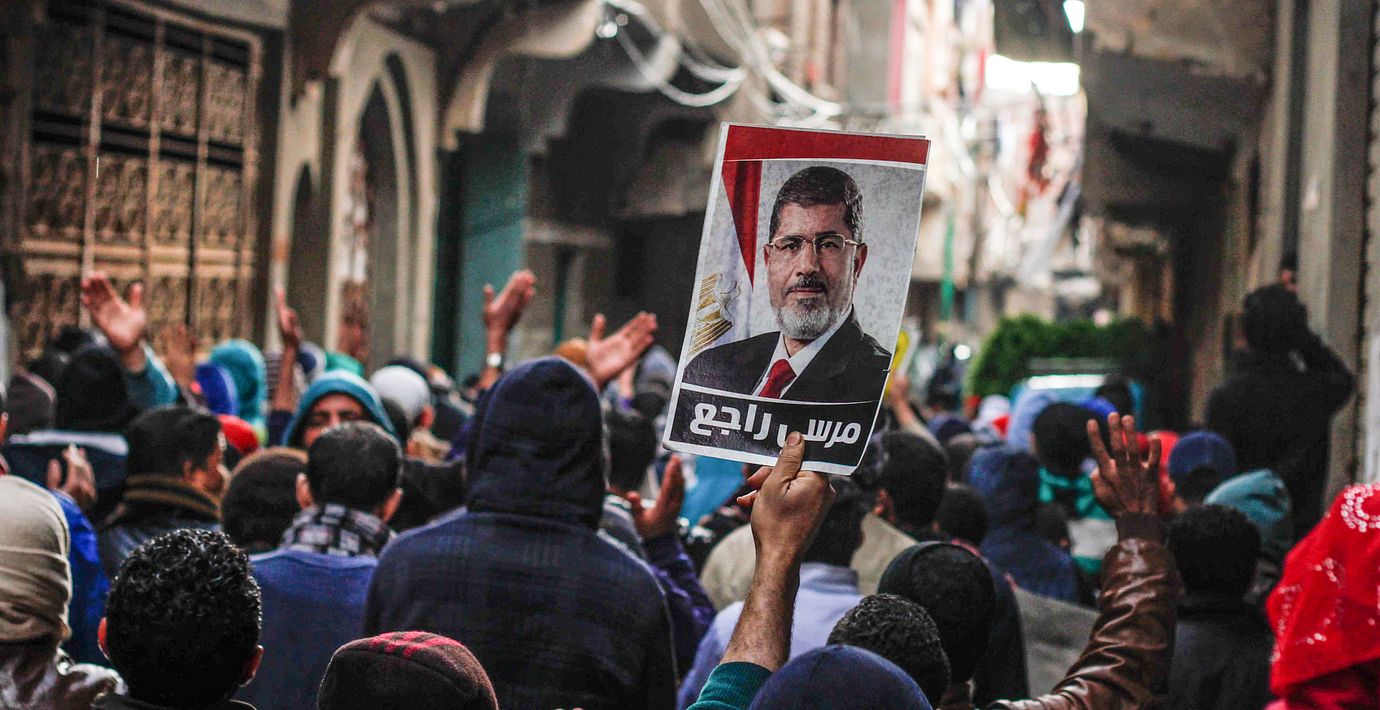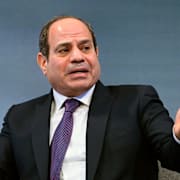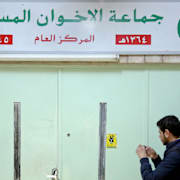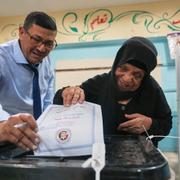
Över 60 döms till fängelse efter massaker i Egypten
59 personer har dömts till 15 års fängelse i Egypten för inblandning i den demonstation 2013 som slutade i massaker, rapporterar AFP. Sju andra personer fick femåriga fängelsestraff.
Straffen är en del av regeringens åtgärder mot den före detta presidenten Muhammad Mursis parti, som numera är en svartlistad terrorgrupp, islamistiska Muslimska brödraskapet.
Efter en militärkupp 2013 avsattes Mursi vilket ledde till omfattande protester. Under en demonstration på Rabaa-torget dödades minst 800 personer, enligt människorättsorganisationer.
Läs mer
bakgrund
Rabaa-massakern 2013
Wikipedia (en)
On 14 August 2013, Egyptian security forces and army under the command of General Abdel Fattah el-Sisi raided two camps of protesters in Cairo: one at al-Nahda Square and a larger one at Rabaa al-Adawiya Square. The two sites had been occupied by supporters of President Mohamed Morsi, who had been removed from office by the military a month earlier in the 2013 Egyptian coup d'état. The camps were raided after initiatives to end the six-week sit-ins by peaceful means failed and as a result of the raids the camps were cleared out within hours. The raids were described by Human Rights Watch as crimes against humanity and "one of the world's largest killings of demonstrators in a single day in recent history". According to Human Rights Watch, a minimum of 904 people were killed (at least 817 in Rabaa Square and at least 87 in al-Nahda Square) with strong evidence to suggest more likely at least 1,000 died during the dispersal. However, according to the Egyptian Health Ministry, 595 civilians and 43 police officers were killed and at least 3,994 were injured. Later, the official Forensic Medical Authority stated only 8 police officers were killed and Egypt's National Council for Human Rights stated at least 624 civilians were killed. The Muslim Brotherhood and the National Coalition for Supporting Legitimacy stated the number of deaths from the Rabaa al-Adawiya Mosque sit-in alone was about 2,600. The total casualty count made 14 August the deadliest day in Egypt since the 2011 Egyptian revolution which had toppled former President Hosni Mubarak. Several world leaders denounced the violence during the sit-in dispersals.Violent retaliation followed in several cities across the country. The military appointed interim government declared a three-month-long state of emergency in response and curfews were instituted in many areas.
bakgrund
Muhammad Mursi
Wikipedia (en)
Mohamed Mohamed Morsi Issa Al-Ayyat (; Arabic: محمد محمد مرسي عيسى العياط, ALA-LC: Muḥammad Muḥammad Mursī ʿĪsā al-ʿAyyāṭ, IPA: [mæˈħæmmæd mæˈħæmmæd ˈmoɾsi ˈʕiːsæ (ʔe)l.ʕɑjˈjɑːtˤ]; 8 August 1951 – 17 June 2019) was an Egyptian politician and engineer who served as the fifth President of Egypt, from 30 June 2012 to 3 July 2013, when General Abdel Fattah el-Sisi removed him from office in a coup d'état after protests in June. An Islamist affiliated with the Muslim Brotherhood organisation, Morsi led the Freedom and Justice Party from 2011 to 2012.
Morsi was born in El Adwah, Sharqia Governorate before studying metallurgical engineering at Cairo University and then materials science at the University of Southern California. He became an associate professor at California State University, Northridge from 1982 to 1985 before returning to Egypt to teach at Zagazig University. Associating with the Muslim Brotherhood, which was then barred from office under President Hosni Mubarak, Morsi stood as an independent candidate for the 2000 parliamentary elections. Following the Egyptian Revolution of 2011, which resulted in Mubarak's resignation, Morsi came to the forefront as head of the Freedom and Justice Party. It became the largest party in the 2011-12 parliamentary election and Morsi was elected president in the 2012 presidential election.
As president, Morsi issued a temporary constitutional declaration in November 2012 that in effect granted him unlimited powers and the power to legislate without judicial oversight or review of his acts as a pre-emptive move against the expected dissolution of the second constituent assembly by the Mubarak-era judges. The new constitution that was then hastily finalised by the Islamist-dominated constitutional assembly, presented to the president, and scheduled for a referendum before the Supreme Constitutional Court could rule on the constitutionality of the assembly, was described by independent press agencies not aligned with the regime as an "Islamist coup". These issues, along with complaints of prosecutions of journalists and attacks on nonviolent demonstrators, led to the 2012 protests. As part of a compromise, Morsi rescinded the decrees. A new constitution was approved by approximately two-thirds of voters in the referendum.In June 2013, protests calling for Morsi's resignation erupted. The military, backed by the political opposition and leading religious figures, stepped in and deposed Morsi in a coup. It suspended the constitution and appointed Adly Mansour as interim president. Pro-Morsi demonstrations were crushed, resulting in over 800 deaths. Egyptian prosecutors then charged Morsi with various crimes and sought the death penalty, a move denounced by Amnesty International as "a charade based on null and void procedures". His death sentence was overturned in November 2016 and a retrial ordered. Morsi died during trial on 17 June 2019 amid claims that he was being denied appropriate medical care while in custody.
Omni är politiskt obundna och oberoende. Vi strävar efter att ge fler perspektiv på nyheterna. Har du frågor eller synpunkter kring vår rapportering? Kontakta redaktionen



